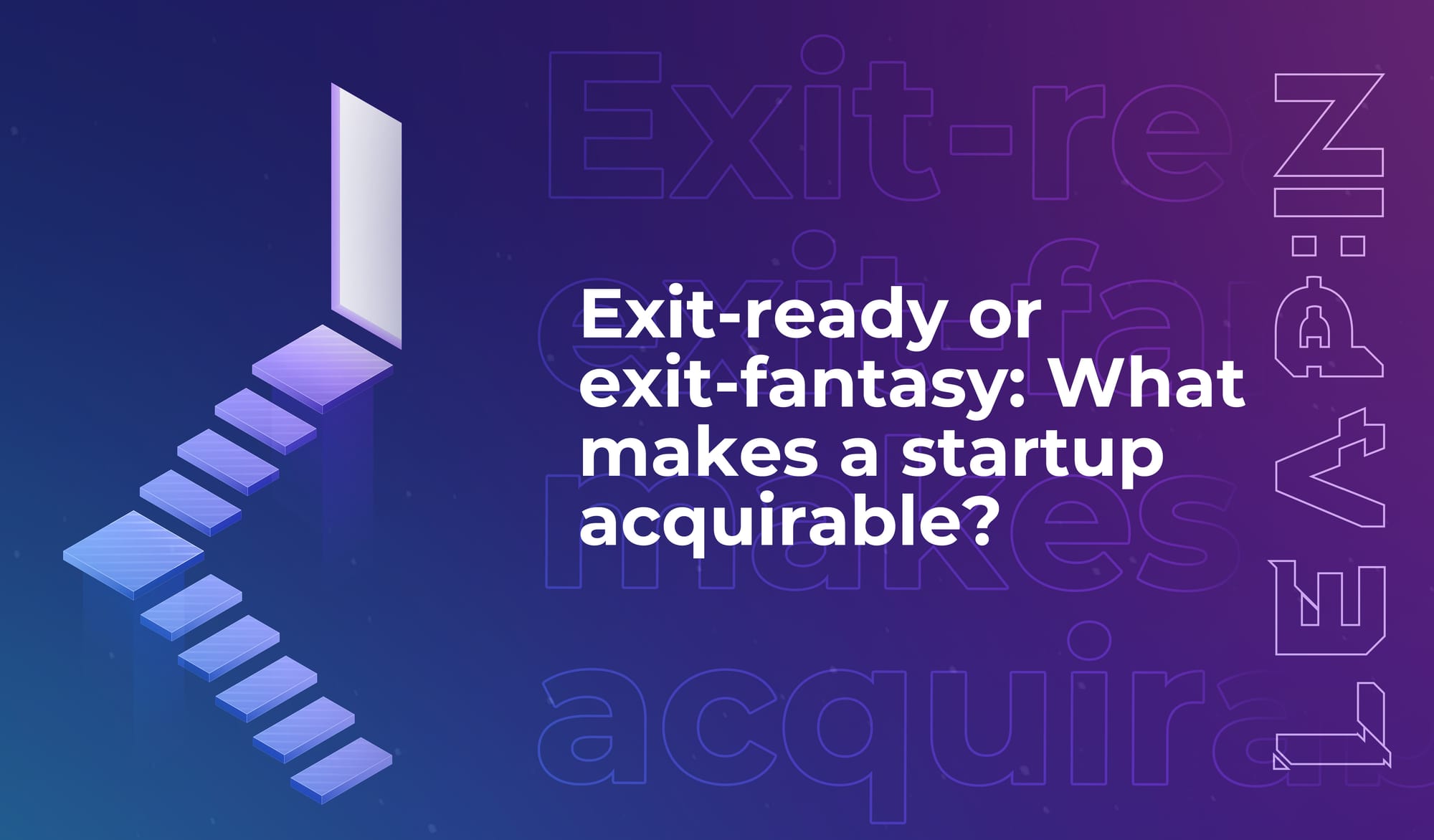
What do semiconductors and Saudi Arabia have in common?
Innovation emerges – but the groundwork was laid over time


Welcome to the 14 new techies who have joined us this week.
If you haven’t already, subscribe and join our community in receiving weekly tech insights, updates, and interviews with industry experts straight to your inbox.
Insights and inspiration from the global LEAP community – in your inbox every week.
“The biggest success came with Wyzer, which transformed legal and compliance processes through AI, leading to a successful exit.”
And they asked him about his first ever entrepreneurial venture, and the venture that has brought him the most success so far. It got us thinking about what it takes to exit a tech business – and how startups can ready themselves for the possibility that it might happen one day.
If you’re deep in product iterations and customer feedback, you might not be anywhere close to thinking about an exit.
But startups are bought, not sold. And the most successful acquisitions stem from deliberate positioning and strategic foresight, not last-minute deal-making. If an exit is in your future, you should be thinking about it now – so when the time comes, your startup is an attractive proposition to your ideal acquirers.
Let’s look at some of the elements that can make your company stand out.
Acquirers are on the lookout for startups that can fill a gap in their offerings or open doors to new markets. So it’s not just about your product, but about how your solution can complement their broader strategy.
Acquirers will consider whether your startup is a strategic purchase for them, specifically. So if you have an acquirer in mind even at an early stage, do your research and develop your value proposition with their long-term strategy in mind.
Any acquirer will pay close attention to your startup’s financial health. They’ll be looking for consistent revenue streams, healthy margins, and a clear path to profitability – all of which are indicators of a sustainable business.
Being able to demonstrate growth is important, but it’s not everything. Growth without consistent revenue or profitability is just growth, and won’t reassure an acquiring firm that you’ve got what it takes to build long-term stability.
Acquirers aren’t just buying a product. They’re integrating your team with their team – so there’s got to be some compatibility there.
If you have an ideal acquirer in mind you can position yourself for future compatibility now. Do your research to understand their values and culture, and inject some of that into your own fledgling business.
This doesn’t mean you need to pretend to be a mini version of them; but it does mean that your core values need to fit with theirs. You don’t want an acquirer that will dismantle everything you’ve built, and an acquirer doesn’t want a startup that will disrupt (or even upset) their internal team.
If a startup is a leader or innovator in their niche and has a recognisable brand, acquirers will be interested in folding that into their own portfolio.
A strong brand and market position reduces your time to market once acquired; and it offers a shortcut for acquirers that want to expand into your niche.
No acquirer wants to fight to buy the IP for your branding, proprietary tech, patents, or unique processes. They want a startup that can demonstrate clear ownership of its IP.
So right from the beginning, make sure you own everything. Even down to your branding graphics – be careful to transfer ownership of all IP to your business. These assets can increase your startup’s value and give acquirers a competitive edge.
If you’re the only person who can run operations in your business, or your CTO is the only person who can iterate your product…then your startup isn’t scalable.
From inception, your startup needs systems, processes, and teams that can handle growth. From an acquirers perspective, a scalable startup is one that they know can grow under their ownership with minimal friction.
They need to be able to do it even if you quit. So design your operations with that in mind.
A straightforward ownership structure and adherence to legal and regulatory requirements make the due diligence process smoother. Complex cap tables or unresolved legal issues can be red flags for potential acquirers; so keep your house in order.
Can you articulate your vision really clearly? Can you demonstrate your ability to lead a team?
Strong leadership is a valuable asset for an acquirer. They often look for teams that can continue to drive the business forward post-acquisition, so your ability to do that can be a deciding factor in a deal.
This might all feel a bit premature. But being exit-ready doesn’t mean you’re looking to sell tomorrow. It means building a startup that could sell in the future; one that’s resilient and strategically positioned for lucrative opportunities.
If you focus on these qualities from the start, you increase your future chances of a successful acquisition. And even if you never decide to sell – you’ll have built a stronger and more sustainable business along the way.
You’ll connect with tech leaders and investors who can take your startup to the next level. Secure your place in Riyadh now.
Have an idea for a topic you'd like us to cover? We're eager to hear it. Drop us a message and share your thoughts.
Catch you next week,
The LEAP Team

Innovation emerges – but the groundwork was laid over time

Lessons on uncertainty from The Hitchhiker’s Guide to the Galaxy

Why innovation accelerates when industries collide.

Innovation emerges – but the groundwork was laid over time

Lessons on uncertainty from The Hitchhiker’s Guide to the Galaxy

Why innovation accelerates when industries collide.